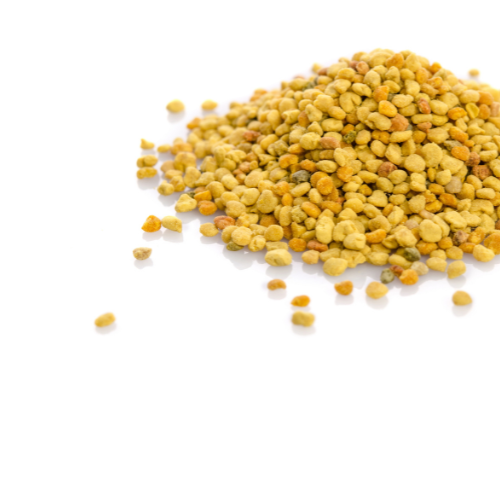Gram Sustainable
Bee Pollen - Australian
Bee Pollen - Australian
Couldn't load pickup availability
Bee Pollen is a natural, nutrient-packed granule collected from the stamens of flowers by bees. It’s a powerful superfood, brimming with a diverse range of essential nutrients, including B vitamins, vitamins C, A, and E, carotenoids, folic acid, amino acids, minerals, essential fatty acids, and all nine vital amino acids.
Harvested from the untouched, biodiverse landscapes of Western Australia, our bee pollen is sourced from pristine forests and conservation reserves, ensuring it’s free from chemicals and pollutants.
The region’s unique flora contributes to the high quality and purity of the pollen, making it an exceptional addition to your wellness routine.
Keep your supplements fresher for longer – add a Miron Violet Glass Jar to your order today.
Ingredients & Allergens
Ingredients & Allergens
Ingredients: Bee pollen
Allergens: May contain traces of allergens. A natural bee product.
Country of Origin: Australia
Recipe & Usage
Recipe & Usage
🐝Start Slow
Begin with a small amount (about 1/4 to 1/2 teaspoon per day) to ensure you don’t have any allergies or sensitivities.
🐝 Add to Smoothies
Sprinkle a teaspoon or two into your smoothie. It blends well with fruits, veggies, and protein powders.
🐝 Sprinkle on Foods
Sprinkle bee pollen on top of your yogurt, cereal, oatmeal, or salads for an extra nutrient boost.
🐝 Mix into Drinks
Stir it into warm or cold drinks like water, tea, or fresh juices. Let it dissolve for a few minutes before drinking.
🐝 Baked Goods
You can mix bee pollen into doughs or batters (like for muffins, pancakes, or cookies), but avoid adding it to food that's too hot, as heat may degrade its nutrients.
🐝 With Honey
Mix bee pollen with honey for a natural energy-boosting spread or to sweeten teas.
Sustainability
Sustainability
Bee pollen is considered a sustainable product because it’s collected naturally by bees without harming the environment or the hive. Bees gather pollen from various plants, and beekeepers typically only harvest a small portion, leaving plenty for the bees to continue their work. Additionally, by supporting bee populations and promoting healthy bee habitats, the collection of bee pollen can contribute to the conservation of pollinators, which are crucial for the overall health of ecosystems and agriculture.
Nutritional Panel
Nutritional Panel
Nutritional Information (Per 100g)
Energy: 1740 kJ (approx. 416 kcal)
Protein: 29g
Total Fat: 5.5g
Saturated Fat: 1g
Carbohydrates: 61.5g
Sugars: 43g
Storage and Shelf Life
Storage and Shelf Life
Store bee pollen in a cool, dry place away from sunlight, and ensure it's in an airtight container to preserve its potency.


